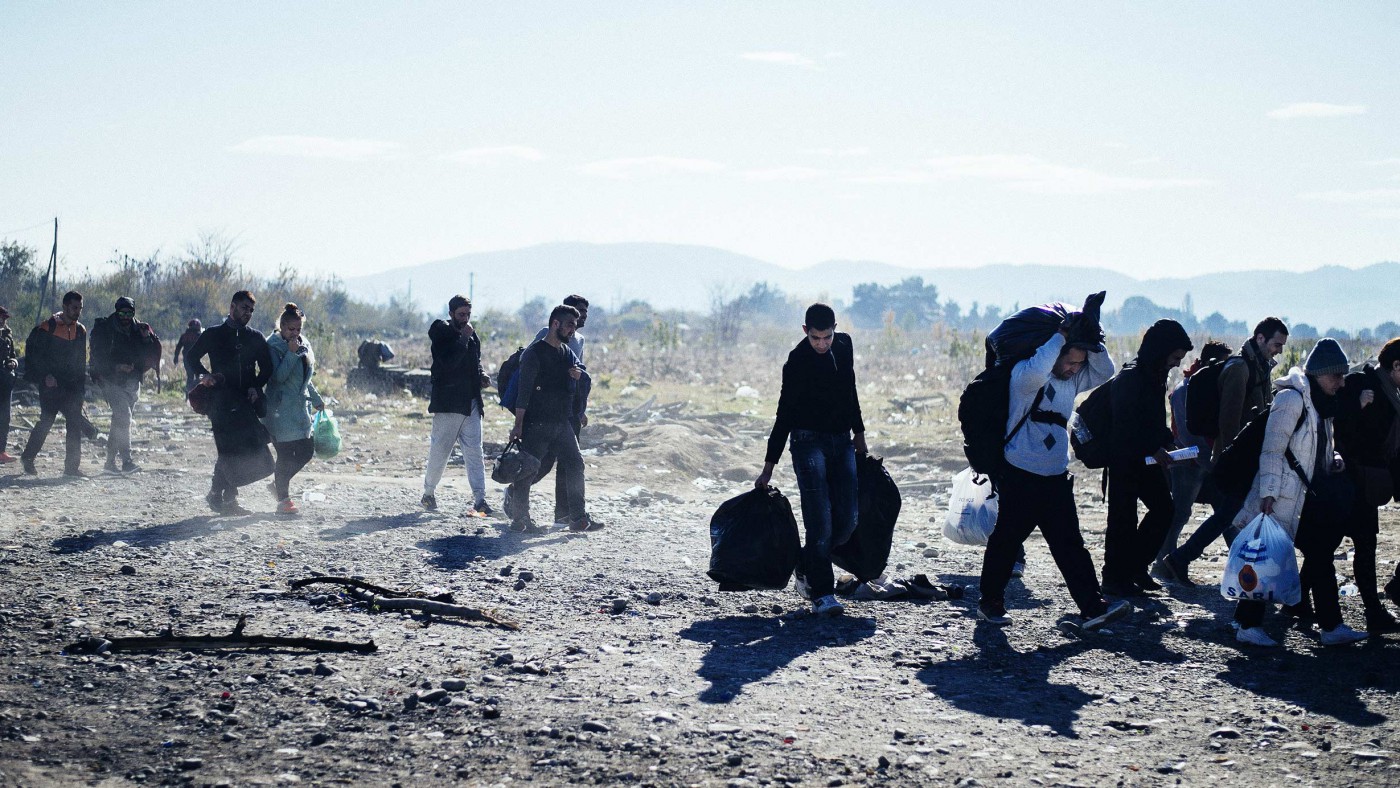In the wake of the Paris terror attacks, the huge swathes of migrants coming to Europe have temporarily been relegated to the bottom of the news pile.
As we focus on the innocents caught up in the bloodshed on Friday night, it is easy to forget the many hundreds of thousands of people who are, right now, heading both to and across Europe.
Yes, some may be aiming to do us harm but the vast majority will simply be refugees from the war in Syria and Isis and many more will be economic migrants from across North Africa.
But it would be a foolish – and costly – mistake to let our focus drift from this ongoing major crisis simply because another, more immediate crisis has been thrown in our path.
Whatever the outcome of the Paris attacks, the mass migration that is currently hitting European shores will continue.
Yet the latest wheeze by the European Union to attempt to deal with the migrant crisis is one we should ignore at our peril: it is as unworkable and short-sighted as it is morally wrong.
Last week at a summit in Malta, the EU offered African countries, in what can only be seen as a blatant bribe, the tidy sum of €1.8bn in return for them agreeing to take back illegal migrants who somehow manage to make it to the EU’s land of milk and honey.
In return for the EU setting up what is laughably called a multi-million pound “trust fund” to “foster stability… and to contribute to better migration management”, African leaders agreed last week to accept thousands of African migrants back into their home countries following their deportation from the EU.
The money is a drop in a deep ocean of despair and will not have and meaningful impact on the flow of migrants in – or out – of Europe.
It’s all very well for poor African nations to say they will accept their nationals back, but first someone has to identify and arrest them. And even if they could, once returned, there is very little African governments can do to stop those people fleeing their war-torn failing homelands once again.
That, however, is the least of the problems with this absurd pretence of a partial solution to the growing migrant crisis.
The EU’s proposal to fund African states to take back their unskilled migrants is not just unworkable, it is just plain wrong.
The idea that economic basket case nations should spend even a tiny fraction of their time or limited resources worrying about the needs of wealthy Europeans is absurd. It’s hardly their problem if we don’t want to keep their illegal immigrants: it’s ours.
And if we really want to stop poor Africans from coming in their droves to Europe then we have to work out a way to stop them wanting to come here in the first place.
The solution to that isn’t bribes to their governments long after the fact, or even a few billion in aid; it’s trade.
Instead of offering to pay African governments to take migrants back, we should be encouraging them to stay in the first place by making sure they have opportunities to find work and prosper at home.
That means opening up EU markets to more trade from Africa, rather than imposing self-serving deals like the Economic Partnership Agreement which benefitted the EU by opening up African markets to European suppliers but damaged the fledgling African businesses who struggled to compete with them on scale, price and quality.
Equally, where free trade does nominally exist, it means dismantling the unaffordable non-tariff barriers that the EU imposes on African imports such as technical and safety requirements far in excess of those required by the rest of the world.
That would help African nations build their own economies and offer a future to their own young men and women rather than a life of poverty.
But it is the moral argument that should weigh most heavily on the minds of the EU and African leaders who brokered this deal – and on us, the voters who will pay for it.
EU leaders have made it clear that they don’t want unskilled, uneducated migrants arriving from war-torn, failing African states to work illegally or in legal low paid jobs in Europe. But they happily admit that they do want those countries’ highly skilled graduates and professionals.
Of course EU nations would benefit from the arrival of many thousands of skilled doctors, engineers, scientists, computer programmers, teachers, academics and entrepreneurs. But these are the very people on whom Africa’s future depends and whose skills are so much more desperately needed at home than in already wealthy Europe.
So, by all means, let’s hold a summit, throw some money at the problem and hope this particular problem will go away.
But, long after life in Paris returns to normal following the terror attacks, this new deal won’t do anything to solve the migrant crisis and, in the long term, will; probably make it far worse.


